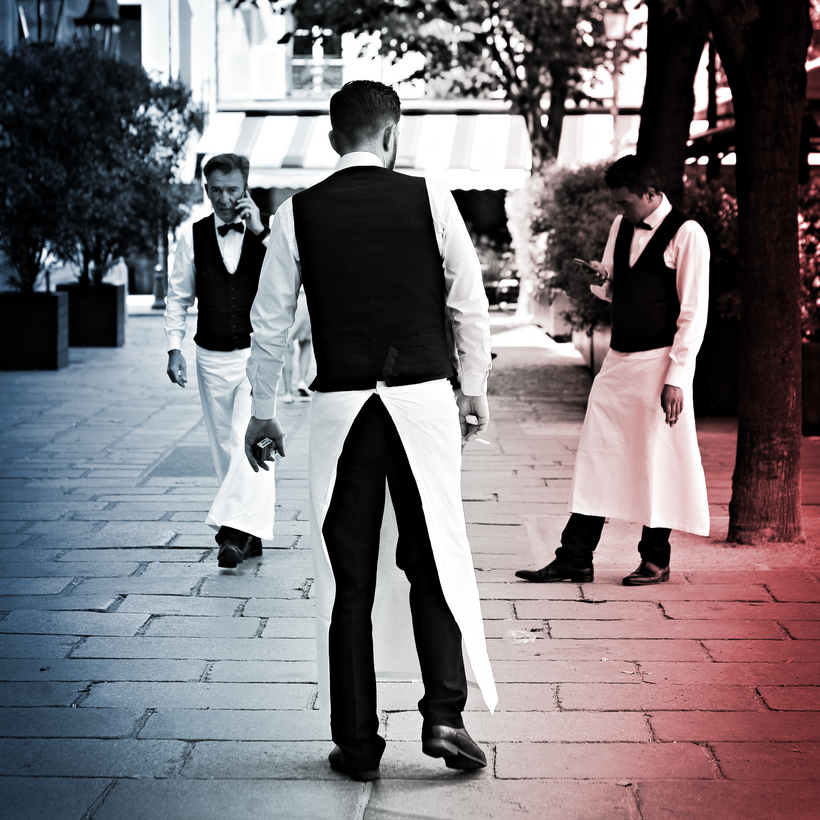Waiting tables, that universal professional experience, is like hiding in plain sight. Step through a restaurant’s swinging door to the kitchen and you enter a completely different world—one that hasn’t changed much since the early 20th century.
The profession is populated by aspiring actors, students in need of a quick buck, the disenfranchised, the recently arrived. It’s as much for those on their way up as those well on their way down. Waiters are often a group of misfits so maligned that the average diner treats them with disdain, while the management pays them the legal minimum to live.
I spent the better part of my early 20s, from 2012 to 2015, waiting tables in the French capital. The job taught me about hard work, human nature, and the brutal reality that is a waiter’s lot. It also introduced me to the underbelly of Paris, the strange hierarchies among the city’s working class.
The job is defined by ritual: polishing our cheap leather shoes with olive oil from the dining tables every morning; stealing bread rolls and cigarette breaks during dinner service; judging where diners should be seated based on their looks, wealth, or fame.
As a waiter, you’re part of a distinguished tradition and an eccentric family—just look at George Orwell’s Down and Out in Paris and London or Anthony Bourdain’s Kitchen Confidential. In my case, the family included a former French legionnaire, a drug dealer, paperless migrants, an aspiring actor, a Communist agitator, former guerrilla fighters, and a thief, among many more. We spoke to each other in bastardized French and swore at each other in Italian, Portuguese, Tamil, and Arabic. We were a brotherhood, a well-dressed Parisian street gang looking to fleece people for tips.
While the people we served rested, we worked. We went 14 hours straight without meals or breaks. In the early hours of the morning, after the brutal night shifts had finished, we socialized at dive bars that served cheap drinks in exchange for the dirty notes that bulged in our wallets. Sleep was snatched on the edge of the city, in thin-walled hovels with shared toilets, scheming landlords, and bedbugs.
The job is defined by ritual: polishing our cheap leather shoes with olive oil from the dining tables every morning, stealing bread rolls and cigarette breaks during dinner service.
There were upsides, to be sure. As waiters, we were the most informed people in town. On an average day we might serve a Hollywood actor food that, just a few minutes before reaching the table, had been on the floor. Or we might listen to a married politician whisper into his mistress’s ear.
But we were also like Tantalus, surrounded by people doing the two things we could not: sitting down and eating.
Until recently, that is. The pandemic showed waiters that there are jobs that will pay you better—and let you sleep. It looks like waiters have had enough of waiting and are on the hunt for better things. There are currently somewhere between 200,000 and 300,000 vacant waiting jobs in France. It’s a similar story in most other Western countries.
During the pandemic lockdowns, everyone dreamed of returning to restaurants—except those that worked at them. Next time you’re out to dinner, give a thought to your waiter. And maybe some change too.

Edward Chisholm’s A Waiter in Paris: Adventures in the Dark Heart of the City will be published on August 9 by Pegasus

